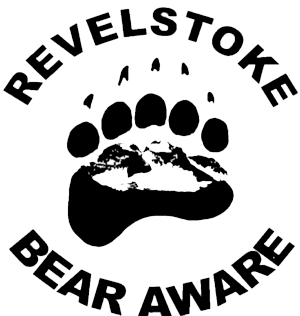Gardens & growing
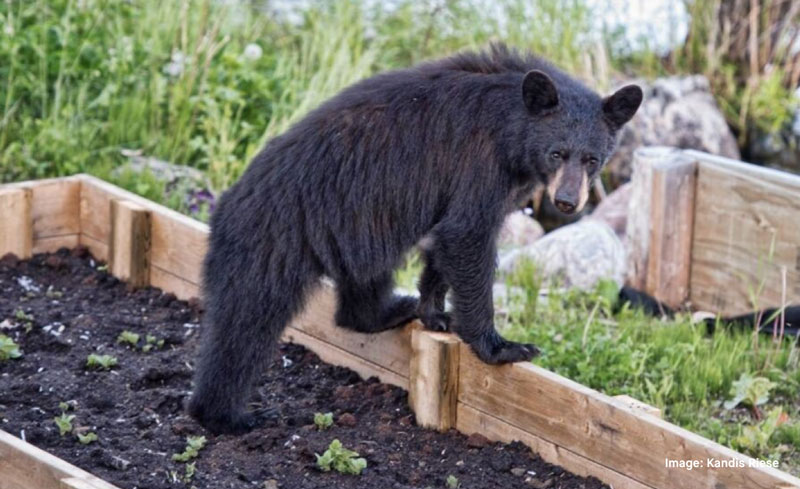
To a bear, your crops, orchards and gardens are grocery stores.
Revelstoke is a green, fertile community where gardening is a hobby of many people and you don’t have to look far to see a fruit tree. Composting and managing trees properly is imperative to gardening safely in bear country.
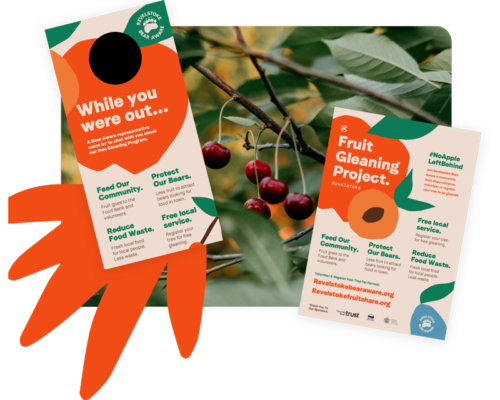
ORCHARDS, FRUIT TREES & BERRIES
Say hello to our Fruit Gleaning Project.
Need some help with your harvest? Our fruit gleaning team will take care of it.
Ripe fruit and berries are a bear’s favourite food.
What you thought was a harmless crop of raspberry canes might just provide an appealing afternoon snack to a hungry bear. Unmanaged fruit trees and berries can pose a public safety issue.
WHY DO BEARS ATTACK DOGS?
Understanding why unmanaged fruit is a danger.
Domestic fruit trees are not a natural source of food for bears. They are acknowledged as an bear attractant, and bring bears into our community.
You may not mind if a bear feasts on your fruit, but it is not only dangerous, it is an ofense under the British Columbia Wildlife Act.
Unmanaged fruit trees attract and create a food-conditioned, habituated bear who will come into contact with humans. The greater the amount of contact, the greater the potential for a negative incident.
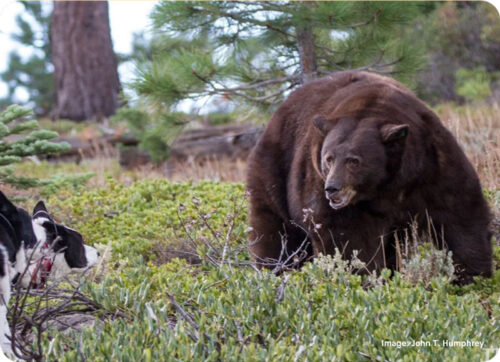
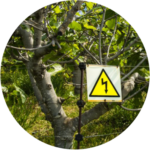
Electric fence the area.
A small, inexpensive electric fence system will act as a bear deterrent for your orchards or fruiting shrubs. Learn more about how to erect an electric fence.
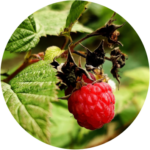
Harvest your fruit.
As soon as fruit is ripe, or even just before, harvest it. If you aren’t able to manage your trees and shrubs, contact our Gleaning Project team to help.
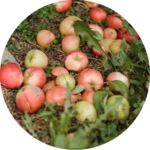
Pick up windfall.
Pick up all fallen fruit. Ripe windfall makes an easy meal for bears. Prune your fruit bearing trees and shrubs in spring to limit the harvest to be manageable.
Smelly compost attracts bears.
The key to composting in bear country is making sure it is ‘odour free’. Compost that doesn’t smell is safe compost. Compost that smells will attract bears.
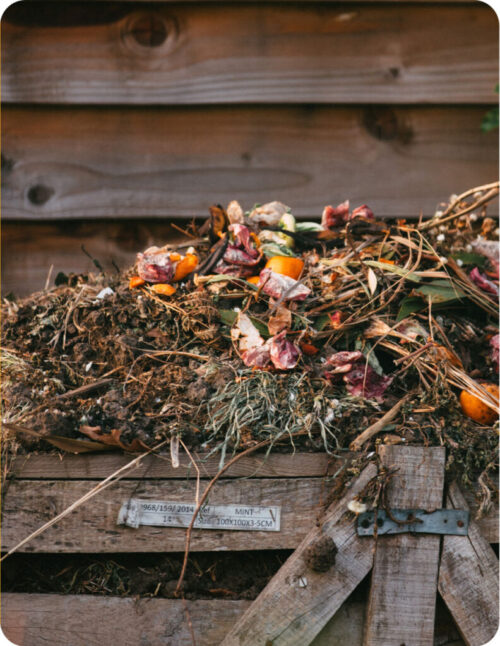
2 Top tips to compost safely in bear country.
1. Check the list of safe materials to compost.
On-site backyard composting is the most effective and environmentally-friendly way to manage the organic ‘waste’ your home produces. Download the “Composting guide” printable for more information on composting safely and all the details you need to know about what’s safe to throw in and what to throw out.
2. Community compost.
Take advantage of the local composting facility at the local landfill and share the wealth with our community.
A quick look at composting safely…
Follow these rules when composting:
Never add meat, fish, dairy products, oil, unrinsed egg shells, cooked food, or large amounts of fruit. These items will attract bears and other
animals long before they decompose.
Always layer the waste that you are adding. It is best to layer kitchen scraps between a dry layer of leaves or grass clippings.
Ensure the compost is kept moist, like that of a wrung out sponge. If the contents are too dry, it will take overly long to decompose and if too wet, the contents may begin to smell.
Mix or turn your compost on a regular basis. Composting is an aerobic process. The microorganisms and fungi at work require oxygen to break down the organic material.
Don’t place your compost close to a door. If a bear does come to your compost, you don’t want to startle a bear.
Use ash or lime if your compost does start to smell.
Vegetable gardens make an easy snack.
Luckily for the garden loving residents of Revelstoke, vegetables are not a bear’s favorite snack, but given the opportunity, they will dig up and eat your crops.
WILL A BEAR EAT MY VEGETABLES?
If a bear is hungry, your vegetable garden is on the menu.
Don’t panic, your garden is likely fine. However, bears will dig up and eat aromatic foods if they are hungry and happen to be in the area. Black bears prefer carrots, tomatoes, squashes, melons, early vegetables, sweet corn, potatoes and other root vegetables.
Pick vegetables as they ripen.
Don’t use blood meal, fish fertilizer or deer repellent as they are known bear attractants.
If possible, plant your garden away from your house and distance it from obvious bear pathways. Consider the use of electric fencing to protect your garden.
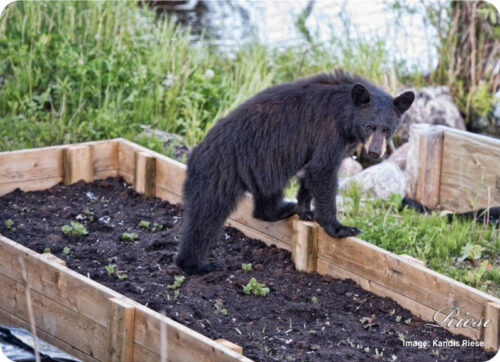
Landscape smart in bear country.
Some plants are particularly attractive to bears as a food source. Be aware when landscaping your garden.
Is my garden a
tasty bear attractant?
Want to know if your garden is full of bear food?
Find out more on what is, and what is not on the bear menu.
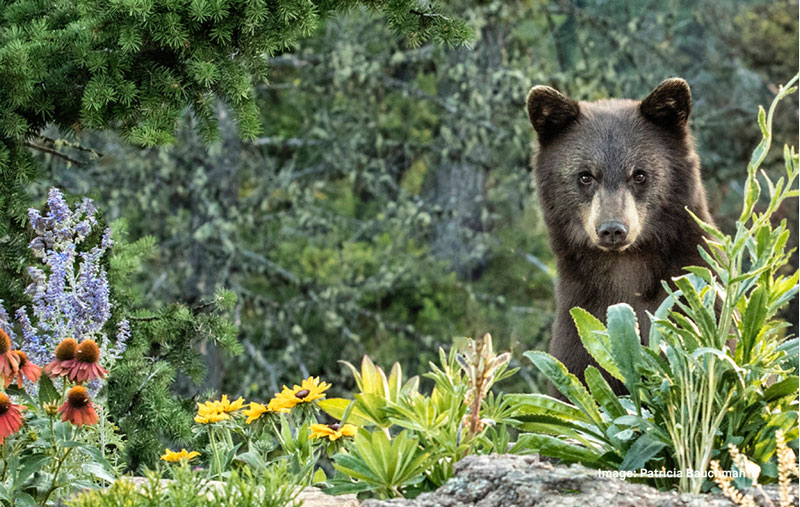
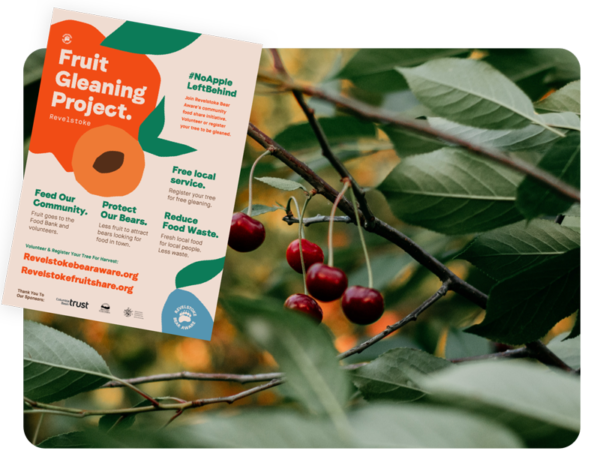
BE BEAR AWARE
Top Tip
Glean your fruit trees.
Keeping your fruit tree gleaned is so important in making sure your garden doesn’t attract bears.
If you can’t pick your own fruit or manage your tree, get in touch with our awesome Gleaning team. We’ll take care of the fruit and share it with the community.
More to discover:
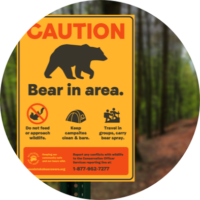
BE BEAR AWARE
Living in bear country
Discover how to keep our community safe and Revelstoke’s bears wild.
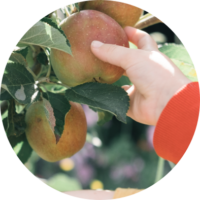
TAKE ACTION
Get involved
Make a difference locally when you volunteer, donate or become a member.
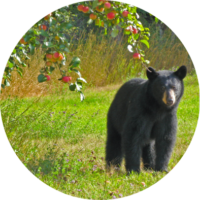
SIGHTINGS
Reporting a bear
Find out who to inform and what information to share when you spot a bear..
